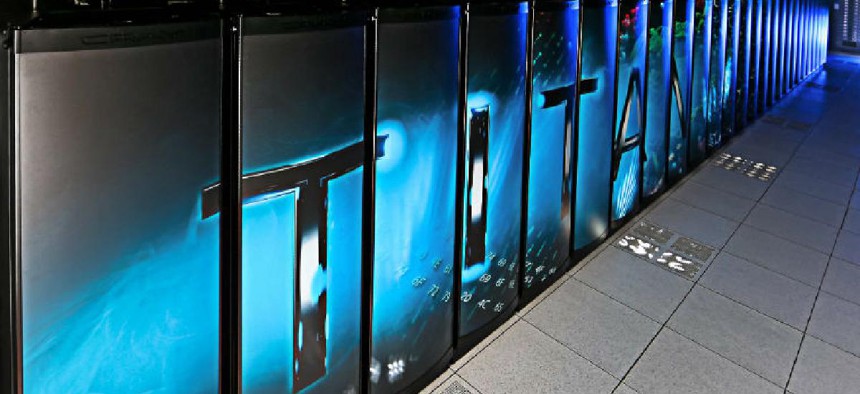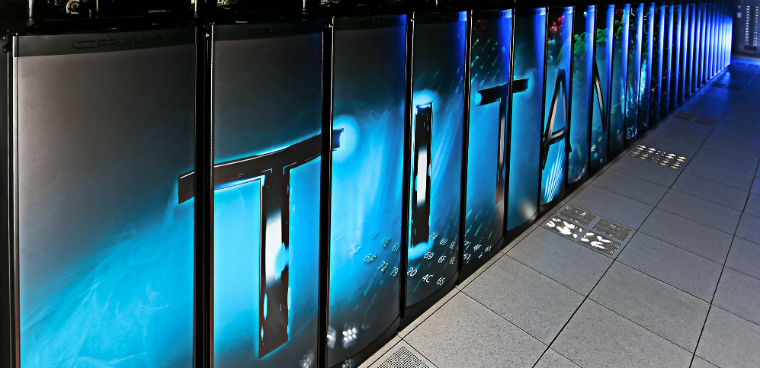DOE plans cyber office, supercomputing expansion

The Energy Department budget would support a new infrastructure cybersecurity office and high-capacity computing efforts.

The Titan supercomputer at the Oak Ridge National Laboratory.
Although the president's 2019 budget proposal for the Department of Energy looks to cut funding for the agency's renewable energy research, it would re-inforce cyber protections for energy infrastructure and substantially boost exascale and quantum computing programs.
The' $30.6 billion budget request calls for "transformative science and technology innovation" to support future national security and economic growth. The agency would invest almost $500 million to develop cybersecurity technologies specifically for energy infrastructure.
'The budget earmarks $395 million for enterprise cybersecurity risk management.
According to a Feb.14 statement by Energy Secretary Rick Perry, the FY19 proposal would provide another $96 million for electric grid and energy sector cybersecurity research and development, as well as establish a separate account for Cybersecurity, Energy Security, and Emergency Response. The separate CESER account, Perry said, would consolidate funding to address the agency's expanded cybersecurity responsibilities.
Perry announced the formation of the new Office of CESER in his Feb. 14 statement. The new organization will bolster DOE's efforts in energy infrastructure cybersecurity and energy security, he said.
''The budget also prioritizes exascale computing research and development. DOE would invest $636 million in exascale, splitting the money between its Office of Science, which oversees the national research laboratories, and the National Nuclear Security Administration (NNSA) to develop an exascale software ecosystem for mission-critical applications by 2021.
The Office of Science would get $473 million for exascale under the budget, while NNSA would get $163 million. That combined figure is $376 million above the 2017 enacted level for exascale' development.
The department has been pushing to develop exascale capabilities as China accumulates its own. Last June, Perry announced $258 million in funding awards under the agency's Exascale Computing Project, which is part of the agency's PathForward program for high-performance computing development. The ECP awards went to Advanced Micro Devices, Hewlett Packard Enterprise, IBM, Intel and NVIDIA.
The department also seeks to devote $105 million to quantum computing technology to build up U.S.' competency and competiveness.
NEXT STORY: DOD to clarify its cloud plans with industry day


